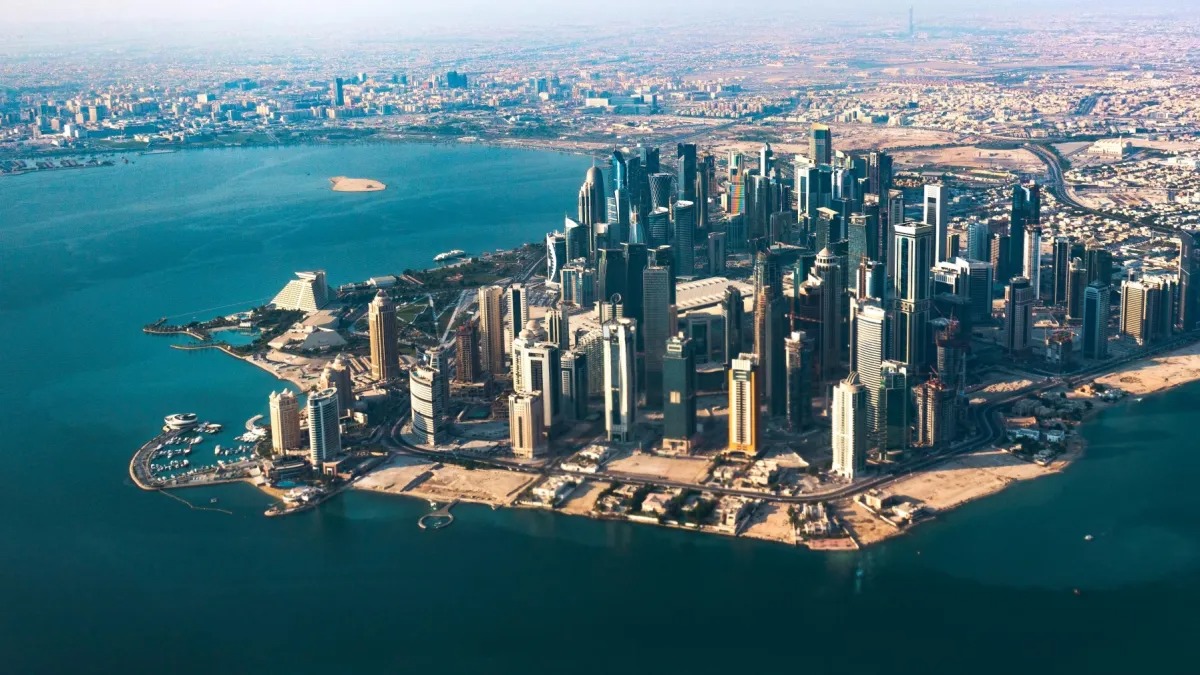Business
Hong Kong Seeks Tech Partnerships in Middle East

Hong Kong is working to build strong ties with the Middle East through new partnerships in innovation and technology. On Saturday, Chief Executive John Lee will lead a business delegation to Qatar and Kuwait. The goal is to open new economic doors and grow collaboration in smart technology and green energy.
This mission marks a new step in Hong Kong’s outreach to the region. The delegation includes top business leaders, including Federation of Hong Kong Industries Chairman Steve Chuang.
Aiming for New Tech and Trade Links
The group plans to meet with local chambers of commerce and sign new cooperation deals. These deals include Memoranda of Understanding (MOUs) with firms in both Qatar and Kuwait. The focus will be on areas such as smart cities, green energy, and financial services.
Steve Chuang said both Qatar and Kuwait are actively looking beyond oil. Their national plans—Qatar National Vision 2030 and Kuwait Vision 2035—highlight goals in tech and innovation.
“Smart cities, green energy, and financial services are areas where Hong Kong has real strengths,” Chuang said.
Expanding Business Ties in the Region
Chuang noted that current trade between Hong Kong and the two Gulf countries is still limited. The delegation hopes to change that. During the visit, Chuang also plans to meet with Hong Kong companies already working in the region. He wants to learn more about local business practices and how cultural elements like halal standards affect trade.
This will be the Federation’s second visit to the Middle East. In 2024, a similar delegation traveled to Saudi Arabia and the United Arab Emirates. That trip led to real results. A mobile delivery app from Hong Kong began operations in Dubai. It is now preparing to enter the Saudi market. Another startup, which makes 3D-printed clay reef tiles, secured investment from Saudi Arabia’s sovereign wealth fund.
Why the Middle East Matters for Hong Kong
Chuang believes the Middle East offers many chances for Hong Kong businesses. He said that while the global trade climate remains uncertain, companies in Hong Kong should not only focus on Western markets.
“The Global South is growing fast. Places like the Middle East and ASEAN countries are becoming very important,” he said.
He also sees a two-way benefit. Hong Kong firms can help Middle Eastern companies access the large market in Mainland China. At the same time, they can help Chinese firms expand globally using Hong Kong as a bridge.
Innovation and Culture Go Hand-in-Hand
During the upcoming trip, the delegation will focus not only on deals but also on building trust. Understanding the local culture, such as halal business practices, is a key part of long-term success.
Chuang said that these exchanges are more than just business meetings. They are about learning and sharing ideas. That’s why the delegation includes people from both the tech and finance sectors.
Middle East: A Growing Focus for Hong Kong
Hong Kong’s push into the Middle East comes at a time of global change. As tensions grow in world trade, Asian cities like Hong Kong are looking for new markets.
The Gulf region is investing heavily in smart infrastructure, green energy, and digital services. These are fields where Hong Kong firms can add real value.
In Qatar, the government is building smart cities and digital hubs as part of its 2030 Vision. Kuwait is doing the same under its Vision 2035 plan, which includes smart mobility and renewable energy.
These projects need the kind of expertise Hong Kong offers. The city is already home to many fintech startups, green tech companies, and smart city innovators.
Past Success Inspires Future Growth
The success of the 2024 trip to Saudi Arabia and the UAE has inspired confidence. That visit led to real business deals and long-term cooperation. It also helped build stronger ties between Hong Kong and the Middle East.
By going to Qatar and Kuwait, the current delegation hopes to expand on that success. The goal is to create a long-term partnership based on mutual growth.
What Happens Next?
After the trip, the Hong Kong delegation will share findings and business leads with local industry groups. They also plan to follow up on signed MOUs and help companies build partnerships.
As global markets shift, Hong Kong is making smart moves. Reaching out to the Middle East shows how the city is adapting to new global trade realities.








